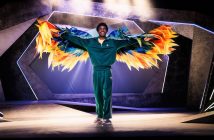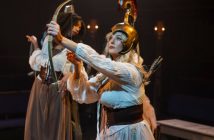As we all know, Tom Stoppard loves nothing more than a play on words and this is abundantly clear from the very start of The Real Thing, his 1982 play now revived at the Old Vic. We watch as a husband carefully constructs a verbal trap for his wife to prove she is having an affair.
This, though, is not a real thing. It’s a play within a play – which we see as the actress arrives home and turns out to be actually the wife of the first scene’s playwright, Henry. As she drops her bag on the floor, the house of cards he’s building tumbles (“House of Cards” being the name of the play in which she’s appearing) and their friends arrive for drinks – the actor who was playing her husband and his wife who is having an affair with the playwright. (Got it? Keep up at the back.)
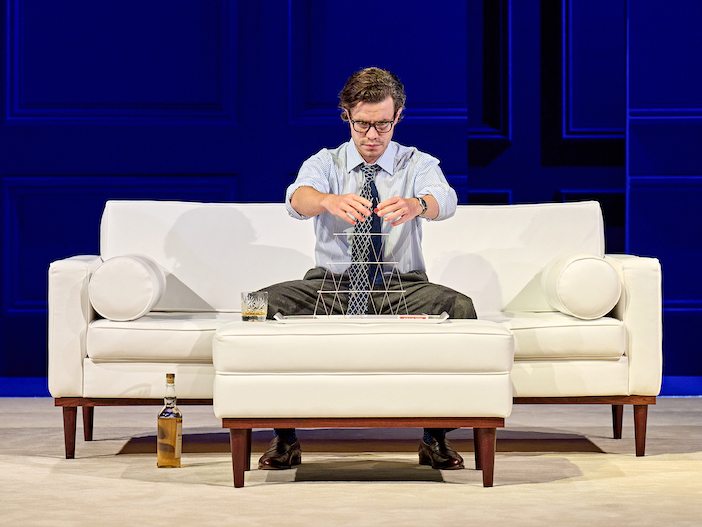
Oliver Johnstone as Max in The Real Thing at The Old Vic
“The real thing” here is constantly in question. When are we watching ‘real’ people rather than actors? Is the love between the playwright and his new partner, Annie (previously his mistress) the real thing that exists beyond any challenge? Come to that, is the playwright himself all that he seems?
In his first scene, he’s busily trying to invent a version of himself for Desert Island Discs in which he appears rather more cultivated than he really is, searching through classical music for his choices when, in reality, he prefers pop. In one of Stoppard’s comically revealing moments, he stumbles across a piece by Bach and accuses him of stealing it from Procul Harum. [Director Max Webster’s use of music and dancing stage hands is an incidental triumph.]
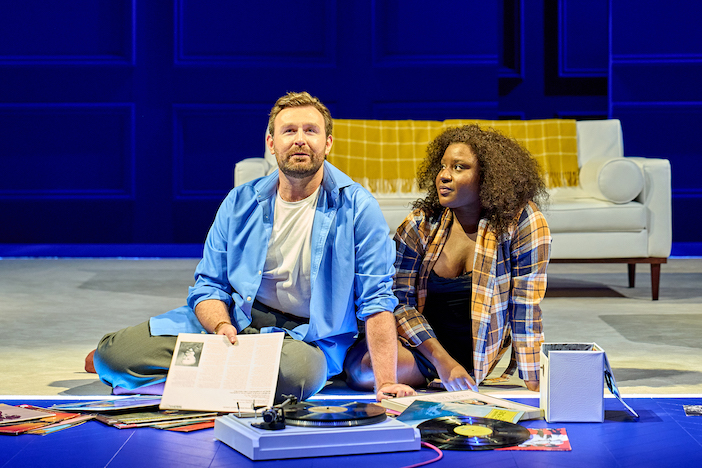
James McArdle as Henry and Susan Wokoma as Charlotte in The Real Thing at The Old Vic.
While the main story here is the relationship between Henry and Annie, there is a second story about Brodie, a squaddie who aspires to write a play of his own (with some help from Henry) and is Annie’s protégé, in her eyes a victim after he vandalises a wreath on the Cenotaph. The act of writing itself is also under the spotlight here and raises another question – whether it is more important to write well than to have a message to deliver.
As the pompous Henry, James McArdle manages to engage our sympathy for him – though it can be trying at times when his immense ego is given full rein. Bel Powley is a mercurial Annie but something of a cypher. It is to Henry his fellow playwright that Stoppard has, interestingly, given all the best lines and the other characters fall in his shadow. I was never quite convinced by the on-stage chemistry between the two protagaonists while, as Brodie, Jack Ambrose has a mountain to climb – left with a part that’s a mere caricature of a working-class soldier (though he does shine a light on the class attitudes within the play of which perhaps even Stoppard was unaware).
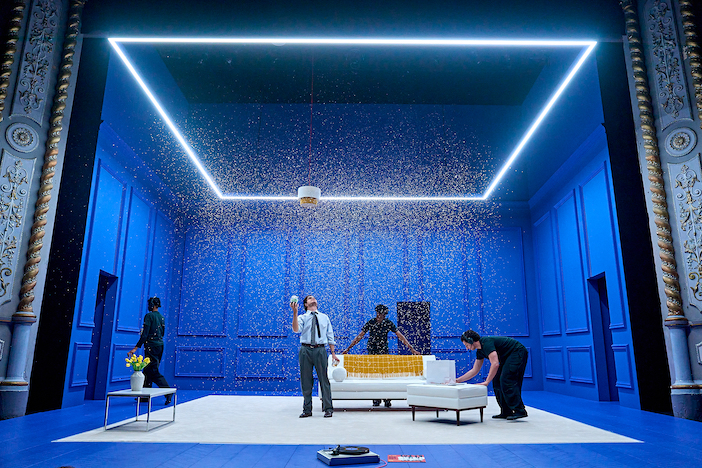
Peter McKintosh’s set is a divinely dark blue panelled affair and Richard Howell’s clever lighting brings its own sharp focus. The main focus, though, is always McArdle who pulls it all together. In the first act he’s a pretentious monster, in the second act, he crumbles into an emotional wreck, beset by doubts around Annie’s fidelity, his persona undermined in a meeting with his teenage daughter (Karise Yansen). Which is the real thing? Stoppard leaves you to answer that one yourself.
The Real Thing by Tom Stoppard runs at the Old Vic until 26th October. For more information, and for bookings, please visit www.oldvictheatre.com.
Photos by Manuel Harlan


